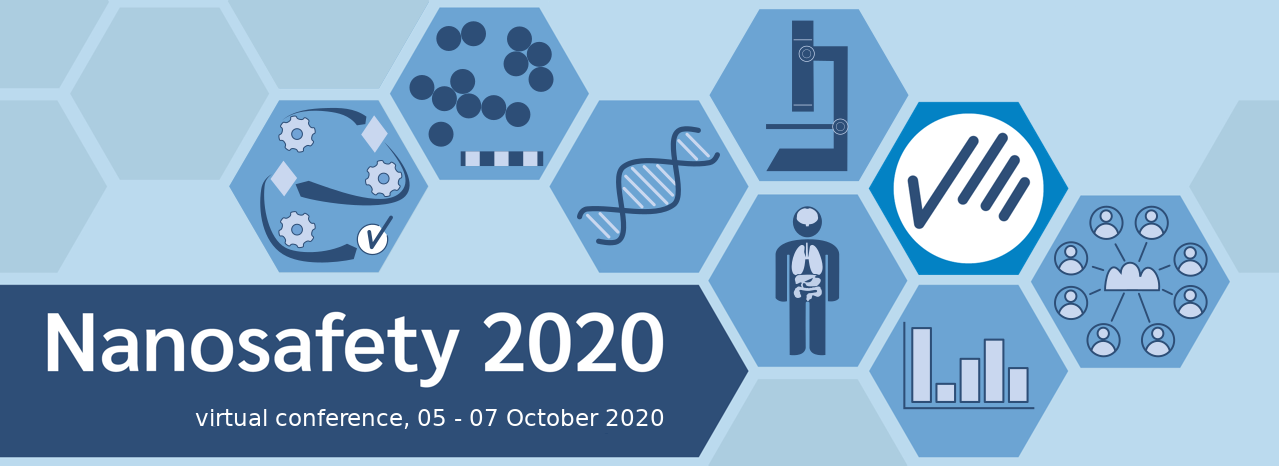We process personal data collected during visits to our website, taking into consideration the applicable data protection regulations. We do not publish your data or pass them on to third parties for unjustified reasons. Below is an explanation as to the data we collect during your visit to our website and exactly how these are used:
Who we are
Our website address is: http://nanosafety2020.leibniz-nanosicherheit.de.
A. General information
1. Scope of data processing
Generally, we only collect and use personal data if this is required in order to provide a functional website, as well our content and services. Our users’ personal data are regularly collected and used after obtaining the consent of users. An exception is made in cases in which the processing of the data is legally permitted.
2. Legal basis for the data processing
If we obtain the data subject’s consent for personal data processing operations, Article 6(1)(a) of the General Data Protection Regulation (GDPR) serves as the legal basis.
In the case of processing personal data required for the fulfilment of a contract, the contractual party of which is the affected person, Article 6(1)(b) of the GDPR serves as the legal basis. This also applies to processing operations required for pre-contractual measures.
If the processing is required in order to safeguard a legitimate interest of INM or a third party and the interests, fundamental rights and fundamental freedoms of the data subject do not outweigh this legitimate interest, Article 6(1)(f) of the GDPR serves as the legal basis for the processing.
3. Data deletion and storage duration
The data subject’s personal data are deleted or blocked as soon as the purpose for which they were stored lapses. In addition, the data may be stored if this is stipulated by the European or national legislator in European Union regulations, laws or other provisions to which INM is subject. The data are also blocked or deleted if a storage term prescribed by the named standards expires, unless further storage of the data is required in order to conclude or fulfil a contract.
4. Controller’s contact details
The controller, for the purposes of the General Data Protection Regulation and other national data protection laws, as well as other data protection regulations is:
INM – Leibniz-Institut für Neue Materialien gGmbH
Campus D 2 2
D-66123 Saarbrücken, Germany
Telephone: +49 (681) 9300-0
Website: https://www.leibniz-inm.de/en
5. Data protection officer’s contact details
The controller’s data protection officer is:
Stefan Brück
INM – Leibniz-Institut für Neue Materialien gGmbH
Campus D 2 2
D-66123 Saarbrücken, Germany
Telephone: +49 (681) 9300-245
Email: datenschutzbeauftragter@leibniz-inm.de
B. Provision of the website and creation of logfiles
Our servers and applications automatically collect data and information from computer systems during every visit to our website.
The following data are collected temporarily:
- Your IP address
- Date and time at which you accessed the site
- Address of the site visited
- Address of the website visited beforehand (referrer)
- Name and version of your browser/operating system (if transmitted)
The data are stored in the log files on our system. These data are not stored together with the user’s other personal data.
Article 6(1)(f) of the GDPR provides the legal basis for the temporary storage of the data and logfiles. Logfiles are stored in order to guarantee the functionality of the website. In addition, we use the data to optimise the websites, carry out troubleshooting and ensure the security of our IT systems. We also have a legitimate interest in data processing for these purposes in accordance with Article 6(1)(f) of the GDPR.
The data are deleted as soon as they are no longer required to achieve the purpose for which they were collected. In the event that the data are collected to provide the website, this is the case when the respective session has finished. In the case of the storage of the data in logfiles, this is the case after seven days at the latest. An extension of the storage period is possible. In this case, the users’ IP addresses are deleted or scrambled so that it is no longer possible to assign the visiting client.
Collecting the data in order to provide the website and storing the data in logfiles is absolutely vital to the operation of the website. Consequently, the user is unable to opt out.
C. Use of cookies
No cookies are used on this website.
D. Embedded contents from other websites
Contributions on this website may contain embedded content (e.g. videos, pictures, articles etc.). Embedded content from other websites behaves exactly as if the visitor(s) had visited the other website. This means, that these sites may collect information about you, use cookies, embed additional third-party tracking services, and record your interaction with that embedded content, including your interaction with the embedded content if you have an account and are logged on to that site.
E. Data transmission
Your personal data are only transmitted to state institutions and authorities when required by law or for law enforcement purposes due to attacks on our network infrastructure. The data are not passed on to their parties for any other purposes.
F. Rights of affected persons
In principle, as the data subject whose personal data are collected as part of the aforementioned services, you have the following rights insofar as there are no legal exemptions to be applied in individual cases:
- Access (Article 15, GDPR)
- Rectification (Article 16, GDPR)
- Erasure (Article 17(1), GDPR)
- Restriction of processing (Article 18, GDPR)
- Data portability (Article 20, GDPR)
- Objection to processing (Article 21, GDPR)
- Revocation of consent (Article 7(3), GDPR)
- Right to lodge a complaint with a supervisory authority (Article 77, GDPR). For INM, this is the Saarland Independent Data Protection Centre, Fritz-Dobisch-Str. 12, 66111 Saarbrücken, Germany
G. Changes and adjustments in this statement
Depending on the tools we are working with, the information on this page may be adjusted and change accordingly. Last changes: 21 July 2020.
